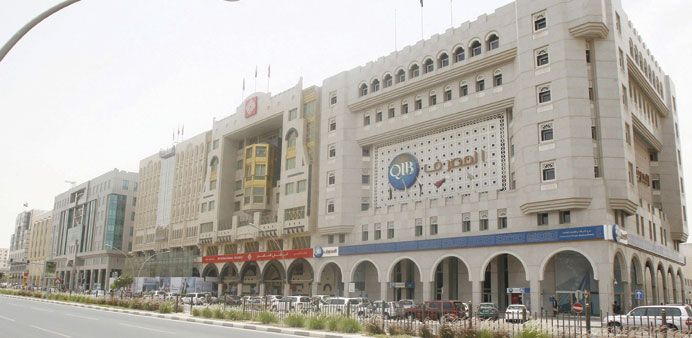Driven by demand for infrastructure and investment financing, Qatar’s Islamic banks are expected to grow to $100bn by 2017, a report has shown.
“Saudi Arabia, the UAE and Qatar will all increase their global importance as centres of Islamic finance in the coming years, as the three markets experience rising international demand for financing,” said Euromoney citing a recent report by global credit rating agency Standard & Poor’s.
Qatar is the fastest-growing of the three markets and the balance sheet of the country’s Islamic banks is expected to grow to $100bn by 2017, it said.
Rising international demand for infrastructure and investment project financing is likely to stimulate growth in the three markets.
In particular, there is set to be strong demand from the government sector, which is increasingly working to ensure that at least a proportion of large project financing is structured in compliance with Shariah law.
The Euromoney Qatar 2013 Conference, which will be held under the patronage of HE the Prime Minister Sheikh Abdullah bin Nasser bin Khalifa al-Thani will provide a major platform for discussion of the direction of the Islamic financial sector, and the models for co-operation and competition that will help sustain it.
Co-hosted by the Qatar Central Bank, the Euromoney Qatar Conference 2013 will see a major presentation on “Islamic markets and economic growth”, presented by Dr Khaled al-Fakih, secretary general and CEO of the Accounting and Auditing Organisation for Islamic Financial Institutions (AAOIFI).
It will be the first time that a representative of AAOIFI has addressed the Euromoney Conference, and reflects the growing global interest in Shariah-compliant financing and investing.
Qatar has one of the fastest-growing Islamic banking sectors in the world, driven by the demand for local credit to finance government infrastructure and investment projects.
This in turn is having an impact on the assets of Qatar’s Islamic banks, increasing their share of the country’s banking system. The Islamic banks’ market share in domestic credit increased from 13% in 2006, to 25% at the end of 2012, according to the S&P report.
Global interest in the Islamic financing sector was demonstrated in October 2013, when Britain announced that it would become the first non-Muslim country to sell a bond that can be bought by Islamic investors. Prime Minister David Cameron said that the UK Treasury is drawing up plans to issue a £200mn sukuk, a form of debt that complies with Islamic financial law.
The new Shariah-compliant gilt will enable Britain to tap the growing pool of Islamic investments, which is set to exceed $1tn by 2014.
As a meeting point for international financial players and major decision-makers from the region, the Euromoney Qatar Conference will provide an ideal opportunity for both sides to learn more about expectations and predictions for the local, global and international markets.

